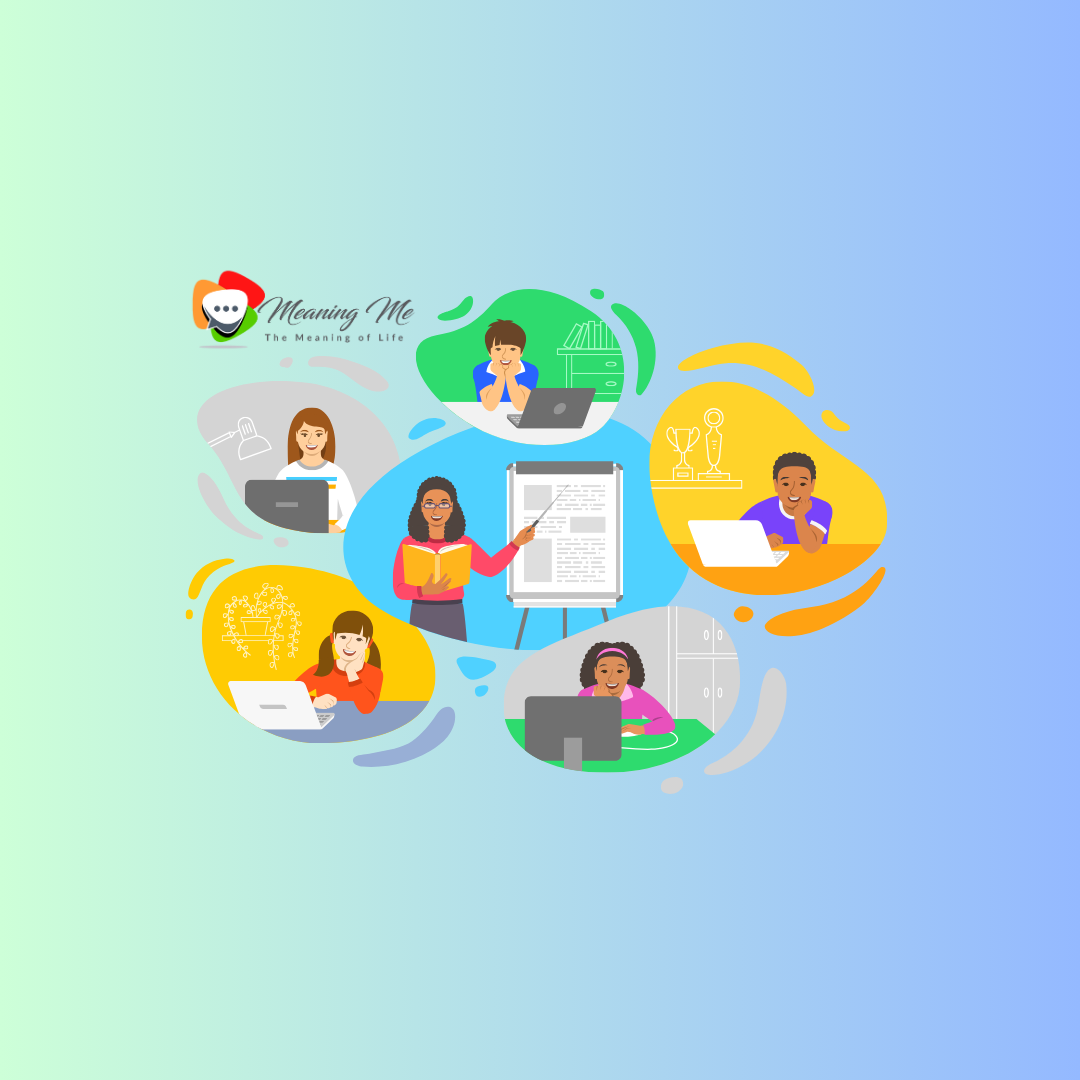Lifelong Learning and Continuous Professional Development: Nurturing a Culture of Growth.
Introduction
The landscape of education has been continually evolving, with e-learning emerging as a prominent force reshaping traditional learning paradigms. As we stand on the cusp of a new decade, the future of e-learning appears both promising and transformative, characterized by a myriad of trends and predictions poised to redefine the educational experience. Over the next decade, e-learning is expected to witness exponential growth driven by technological advancements, changing learner demographics, and evolving pedagogical approaches. This transformative journey will be marked by several key trends, each contributing to the evolution of e-learning in unique ways.

First and foremost, the proliferation of advanced technologies such as artificial intelligence (AI), augmented reality (AR), and virtual reality (VR) is set to revolutionize the e-learning landscape. AI-driven personalized learning experiences will cater to the individual needs and preferences of learners, enhancing engagement and knowledge retention. Similarly, AR and VR technologies will offer immersive learning environments, enabling learners to simulate real-world scenarios and interact with content in unprecedented ways.
Moreover, the democratization of education will continue to gather momentum, with e-learning platforms making quality educational resources accessible to learners across geographical and socioeconomic barriers. Open educational resources (OERs), Massive Open Online courses (MOOCs), and other collaborative learning platforms will empower individuals to pursue lifelong learning and acquire new skills at their own pace and convenience.
Furthermore, the rise of microlearning and bite-sized content will redefine the way knowledge is consumed and retained. Short, targeted learning modules will cater to the modern learner’s preferences for on-the-go, just-in-time learning experiences, fostering greater flexibility and efficiency in skill acquisition.
In addition to technological innovations, the future of e-learning will be shaped by evolving pedagogical approaches and instructional design methodologies. A shift towards learner-centered, experiential learning models will prioritize hands-on activities, project-based assessments, and collaborative learning experiences, fostering deeper engagement and critical thinking skills.
Furthermore, the integration of data analytics and learning analytics will enable educators and instructional designers to gain actionable insights into learner behavior and performance. By harnessing data-driven insights, e-learning platforms can personalize learning pathways, identify areas for improvement, and optimize instructional strategies to maximize learning outcomes.
The changing nature of work and the increasing demand for upskilling and reskilling in the face of automation and digitalization will also drive the evolution of e-learning. Corporate training programs, professional development initiatives, and vocational education courses delivered through e-learning platforms will play a pivotal role in preparing individuals for the jobs of the future and closing the skills gap.
Additionally, the growing emphasis on lifelong learning and continuous professional development will fuel the adoption of e-learning solutions in diverse sectors, including healthcare, finance, and manufacturing. As industries undergo rapid transformation, e-learning will emerge as a flexible and cost-effective solution for updating skills and staying abreast of emerging trends and technologies.
The Future of E-Learning: Trends and Predictions for the Next Decade
The landscape of education is on the cusp of a revolution. E-learning, once seen as a supplementary tool, is poised to become the dominant force in knowledge acquisition. Fueled by technological advancements and a growing need for flexibility, e-learning platforms are evolving to offer a more personalized, immersive, and ultimately, effective learning experience. Here’s a glimpse into some of the key trends and predictions that will define the future of e-learning in the next decade:
- Personalized Learning Powered by AI: Artificial intelligence (AI) will revolutionize e-learning by creating personalized learning journeys
2. Immersive Learning with VR and AR: Virtual Reality (VR) and Augmented Reality (AR) will transform e-learning from passive consumption to active participation.
3. Microlearning for Just-in-Time Knowledge: Bite-sized learning modules, or microlearning, will remain a cornerstone of e-learning. Short, focused lessons cater to our shorter attention spans and the need for on-demand information.
4 Gamification for Enhanced Engagement Gamification, incorporating game mechanics like points, badges, and leaderboards, will continue to be a powerful tool in e-learning.
5. Blockchain for Credentialing and Security: Blockchain technology has the potential to revolutionize how we track and verify learning achievements.
6. Social Learning and Collaboration: The future of e-learning fosters collaboration and connection.
7. Data-Driven Learning Analytics: Data analytics will play a crucial role in optimizing the e-learning experience.
8. Adaptive Learning and AI Tutors: Adaptive learning platforms will leverage AI to adjust the learning path based on your performance.
9. Continuous Learning and Lifelong Education: The future of e-learning fosters a culture of continuous learning and lifelong education.
10. Human-Machine Collaboration in Learning: Human instructors will not be replaced by technology; rather, e-learning will foster a collaborative approach.
These trends and predictions paint a picture of a dynamic and evolving e-learning landscape. The future of e-learning is brimming with possibilities, offering a more personalized, engaging, and effective approach to knowledge acquisition for learners of all ages and backgrounds.
Personalized Learning Powered by AI
One of the major trends shaping the future of e-learning is the rise of personalized learning powered by artificial intelligence (AI). AI algorithms can analyze a student’s learning style, strengths, and weaknesses. With this data, they can tailor the learning experience to the individual. This includes things like adjusting the difficulty level of content, suggesting additional resources, and personalizing the pace of the course. This approach ensures that students are always engaged and challenged, leading to better learning outcomes and improved retention of information. Overall, AI-powered personalized learning has the potential to revolutionize e-learning by making it more effective and efficient for everyone.

Immersive Learning with VR and AR
Buckle up for a learning revolution! Immersive learning, powered by virtual reality (VR) and augmented reality (AR), is poised to transform e-learning in the next decade. Imagine exploring the human body in 3D with VR, or dissecting a virtual frog in a biology class with AR. These technologies aren’t just science fiction anymore. VR headsets can transport learners to historical landmarks, allowing them to walk the streets of ancient Rome or witness a volcanic eruption firsthand. AR overlays digital information on the real world, making complex machinery come alive with interactive labels and step-by-step instructions. This gamified, hands-on approach to learning boosts engagement, knowledge retention, and even empathy. While the cost of VR/AR technology may currently be a hurdle, advancements are expected to bring it down, making immersive learning more accessible in the coming years. As these technologies mature, e-learning will move beyond static screens and textbooks, creating a new era of experiential learning that’s both fun and effective.
Microlearning for Just-in-Time Knowledge
In the fast-paced world of today, learners crave information that’s readily available and directly applicable. This is where microlearning shines. Microlearning delivers bite-sized knowledge chunks, often under 10 minutes, that target specific skills or concepts. This focus on just-in-time learning allows learners to access relevant information exactly when they need it, whether it’s for a new task at work or brushing up on a forgotten procedure. With the ever-growing popularity of mobile devices, microlearning thrives in this on-the-go environment. This trend is poised to shape the future of e-learning by catering to learners with limited attention spans and busy schedules. By providing microlearning modules that are easily digestible and readily available, e-learning can become a more efficient and effective tool for knowledge acquisition in the coming decade.
Gamification for Enhanced Engagement
Leaning into the natural human desire for fun and competition, gamification is rapidly transforming e-learning. This approach incorporates game mechanics – points, badges, leaderboards—into the learning process. By offering a sense of achievement and progress, gamification boosts engagement and motivation. Imagine earning points for completing modules, unlocking badges for mastering skills, or competing with colleagues on a virtual leaderboard. This doesn’t just make learning more enjoyable, it also encourages healthy competition and drives learners to push themselves further. Looking ahead, gamification is expected to become even more sophisticated. We can anticipate the integration of narrative elements, branching storylines, and personalized challenges. These advancements will further blur the lines between learning and playing, creating a truly immersive and engaging e-learning experience for the next decade.
Blockchain for Credentialing and Security
The future of e-learning is poised for a security and trust revolution fueled by blockchain technology. Blockchain, known for its secure data storage in cryptocurrencies, offers a unique solution for managing educational credentials. Imagine diplomas and certificates issued as tamper-proof digital tokens on a blockchain network. This eliminates the risk of forgery and streamlines verification for employers or further education institutions. Learners can easily share their credentials with a single click, while verifiers can instantly confirm their authenticity. This secure system not only benefits learners by giving them more control over their achievements but also fosters trust within the e-learning landscape. Employers can be confident about a candidate’s qualifications, and institutions can ensure the legitimacy of transfer students. As blockchain technology continues to evolve, we can expect even more sophisticated applications in e-learning, creating a more secure and transparent ecosystem for learners and educators alike.
Social Learning and Collaboration
The future of e-learning is moving beyond isolated learning experiences and towards a more social and collaborative environment. This trend capitalizes on the power of social learning theory, which emphasizes learning from interactions with others. E-learning platforms will increasingly incorporate features that foster online communities and group activities. Discussion forums, chat functionalities, and collaborative projects will allow learners to share ideas, ask questions, and learn from each other’s diverse perspectives. This social interaction not only deepens understanding of the material but also hones valuable communication and teamwork skills. Additionally, peer-to-peer learning can provide fresh viewpoints and expose learners to knowledge gaps they might not have identified on their own. This shift towards social and collaborative e-learning will cultivate a more engaging and dynamic learning experience, foster a sense of community, and promote knowledge retention in the decade to come.
Data-Driven Learning Analytics
E-learning is on the cusp of a data-driven revolution. In the next decade, data-driven learning analytics will be a cornerstone of effective learning experiences. These analytics leverage the vast amount of data generated by learners interacting with e-learning platforms. This data includes everything from quiz scores and time spent on modules to clickstream behavior and resource downloads. By analyzing this data, educators and instructional designers gain valuable insights into learner progress, strengths, and weaknesses. This allows for a more personalized approach, tailoring content difficulty, recommending additional resources, and identifying knowledge gaps that require further explanation. Data analytics also empowers educators to continuously improve learning materials by pinpointing areas with low engagement or high confusion. Ultimately, data-driven learning analytics unlocks a future of e-learning that is both highly effective and adaptable, ensuring success for learners of all backgrounds and learning styles.
Adaptive Learning and AI Tutors
E-learning is poised for a significant transformation with the growing power of Artificial Intelligence (AI). One key trend is the rise of adaptive learning powered by AI tutors. These intelligent systems leverage student data, including performance on assessments, learning pace, and preferred content formats. The AI analyzes this data to create a personalized learning path, dynamically adjusting the difficulty, suggesting additional resources like videos or practice problems, and even recommending alternative learning pathways based on the student’s strengths and weaknesses. Imagine an AI tutor identifying your struggle with a complex math concept and then offering interactive tutorials or gamified exercises to solidify your understanding. This tailored approach ensures students are neither bored nor overwhelmed, keeping them engaged and maximizing learning efficiency. As AI technology continues to evolve, we can expect even more sophisticated AI tutors that can provide personalized feedback, answer student questions in real time, and adjust their teaching style to best suit individual learning preferences. This personalized learning revolution powered by AI tutors is sure to be a hallmark of e-learning in the coming decade.
Continuous Learning and Lifelong Education
The future of e-learning is firmly rooted in the concept of continuous learning and lifelong education. With the ever-changing nature of jobs and the constant influx of new information, traditional education models are no longer sufficient. E-learning platforms are uniquely positioned to address this need by offering flexible, accessible learning opportunities throughout a person’s life. Imagine a future where learners can seamlessly integrate bite-sized microlearning modules, personalized AI-powered courses, and even gamified experiences into their daily routines. E-learning platforms will act as companions on a lifelong learning journey, providing the tools and resources needed to stay relevant, competitive, and personally fulfilled in a dynamic world. This shift towards continuous learning will not only benefit individuals by empowering them to adapt and grow, but it will also prepare them to thrive in the dynamic job markets of the coming decade.
Human-Machine Collaboration in Learning
The future of e-learning isn’t just about replacing teachers with machines but rather fostering a powerful collaboration between humans and AI. Imagine intelligent tutoring systems powered by machine learning that can identify a student’s knowledge gaps and recommend personalized learning paths. These AI assistants can handle repetitive tasks like grading and providing feedback on practice exercises, freeing up human educators to focus on what they do best: fostering critical thinking, creativity, and social interaction. This human-machine collaboration allows educators to provide more targeted support and guidance, while AI takes care of the administrative burden. Additionally, AI can personalize the learning experience by curating content based on individual strengths and weaknesses, making learning more efficient and effective. This synergy between human expertise and machine intelligence holds immense promise for shaping a future of e-learning that is both personalized and engaging.
conclusion
The future of e-learning is brimming with exciting possibilities, driven by technological advancements. AI-powered personalization will ensure learners get exactly what they need, while microlearning caters to busy schedules with bite-sized knowledge chunks. Gamification will transform dry content into engaging challenges, fostering motivation and a love of learning. These trends, along with advancements in VR/AR and the focus on social learning, paint a picture of a future where e-learning is no longer a static experience, but a dynamic, personalized, and immersive journey towards knowledge acquisition. This next decade of e-learning holds the potential to democratize education further, making high-quality learning experiences accessible to all.

MeaningMe The Meaning of Life
How will AI personalize the learning experience?
Artificial intelligence (AI) will play a major role in tailoring e-learning to individual needs. AI algorithms can analyze a student’s learning style, strengths, and weaknesses to create personalized learning paths. Imagine AI recommending relevant resources, adjusting difficulty levels, and suggesting the optimal pace for each student. This ensures a constantly engaging and challenging experience, boosting learning outcomes and knowledge retention.
How will microlearning keep pace with our busy lives?
Microlearning, delivering bite-sized knowledge chunks in under 10 minutes, is a perfect fit for our fast-paced world. These focused modules target specific skills or concepts, providing just-in-time learning exactly when needed. Whether it’s for a new task or a quick refresher, microlearning caters to learners with limited attention spans and busy schedules. The rise of mobile devices further fuels this trend, allowing learners to access knowledge on the go. Expect microlearning to become even more prominent in the future of e-learning.
How will gamification make learning fun and engaging?
E-learning is embracing the power of gamification to boost engagement and motivation. This approach incorporates game mechanics like points, badges, and leaderboards into the learning process. Imagine earning points for completing modules, unlocking badges for mastering skills, or competing with colleagues on virtual leaderboards. Gamification not only makes learning more enjoyable but also fosters healthy competition, encouraging learners to push themselves further. The future holds even more sophisticated gamification, with elements like storylines, branching narratives, and personalized challenges, blurring the lines between learning and playing for a truly immersive experience
What role will immersive technologies like VR and AR play?
Virtual Reality (VR) and Augmented Reality (AR) are poised to revolutionize e-learning by creating immersive and interactive learning environments. Imagine practicing a medical procedure in a virtual environment or visualizing historical events in AR. These technologies allow learners to experience concepts firsthand, leading to deeper understanding and knowledge retention. As VR and AR become more affordable and accessible, expect them to become prominent tools in the e-learning landscape of the next decade.
How will e-learning evolve to support lifelong learning?
The future of e-learning recognizes the importance of lifelong learning. In today’s dynamic world, continuous skill development is crucial. E-learning platforms will adapt to cater to this need by offering readily available, bite-sized learning modules and personalized learning paths. This will empower learners to continuously update their skills and stay relevant throughout their careers




